Climate, an Integral Part of the Humanitarian – Security – Development Nexus
The effects of climate change in the Sahel are weakening not only ecosystems but also economies and development progress. Extreme weather events, recurring droughts and floods are making resources increasingly scarce and contributing to a proliferation of crises in a region already struggling with extreme poverty and insecurity. The Sahelian populations are all the more affected because their means of subsistence and production depend directly on natural resources and the yields from agriculture, livestock farming and fishing.
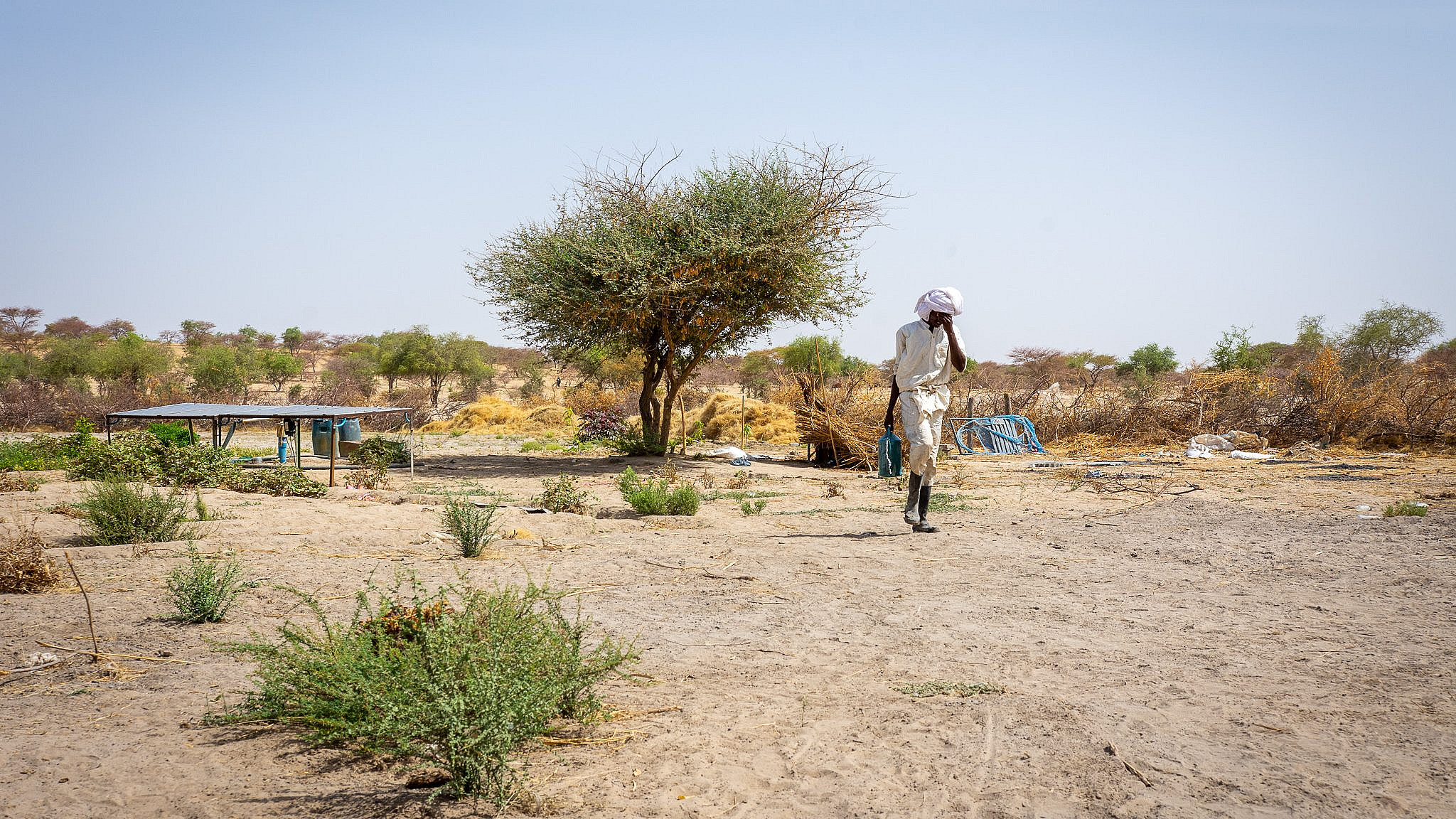
The World Bank estimates that over 13 million people in the Sahel* could fall into poverty due to climate change-related shocks by 2050 if climate adaptation measures are not taken urgently.
In addition, access to natural resources as well as the degradation of land fertility are vectors of conflict, particularly between farmers and herders, and lead to major movements of displaced populations. Traditional and local conflict resolution mechanisms, which are a factor in community resilience, are destabilised and weakened by the insecurity prevailing in the region.
Climate Issues Are at the Heart of the Sahel Alliance’s Action
By the end of 2022, Alliance members were funding 446 projects with a primary of significant climate change adaptation ormitigation objective to nearly € 9,2 billion, in particular through initiatives such as the Great Green Wall or Desert to Power.
Nevertheless, joint efforts need to be strengthened, including in a crisis prevention approach. To achieve sustainable development, climate must remain one of the main areas of work for the humanitarian – security – development nexus.
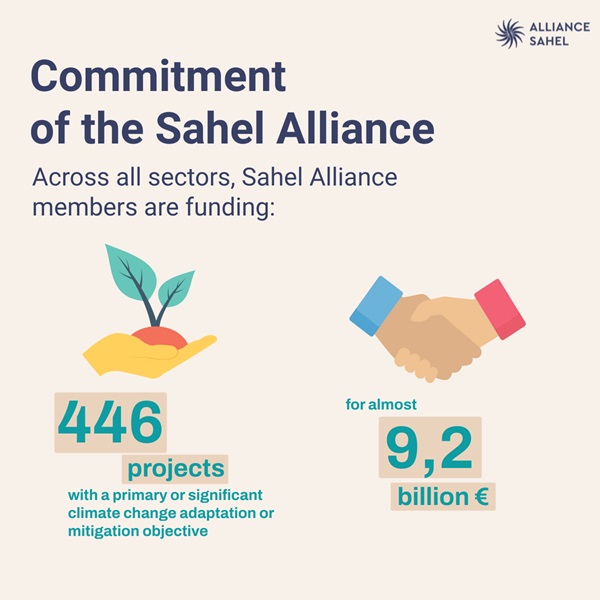
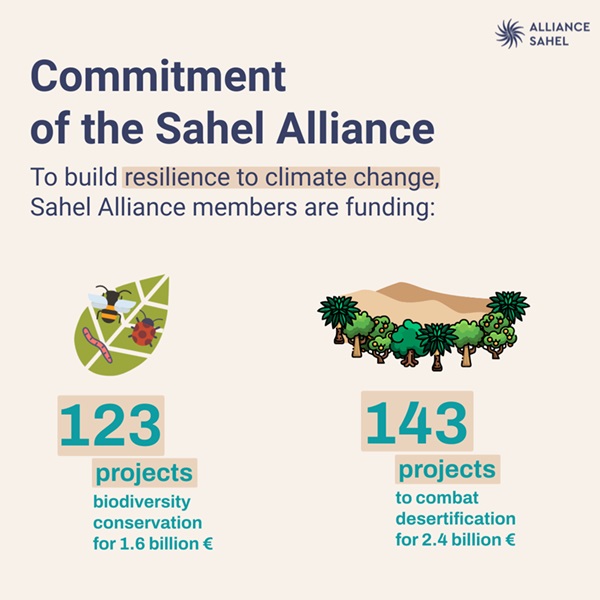
During the meeting on 10 July 2023, the General Assembly of the Sahel Alliance agreed to focus its action on 3 priorities:
- Creating employment and income opportunities for young people through education, training and entrepreneurship
- Resilience to shocks, particularly climatic shocks, by strengthening agricultural and food systems and supporting adaptive social protection systems
- Regional development and access to basic services
The Assembly also proposed the operational implementation of these priorities through the promotion of joint Sahel Alliance initiatives. Supported by several members, such programmes may be new, or consist of scaling up existing programmes that have demonstrated significant results and impact.
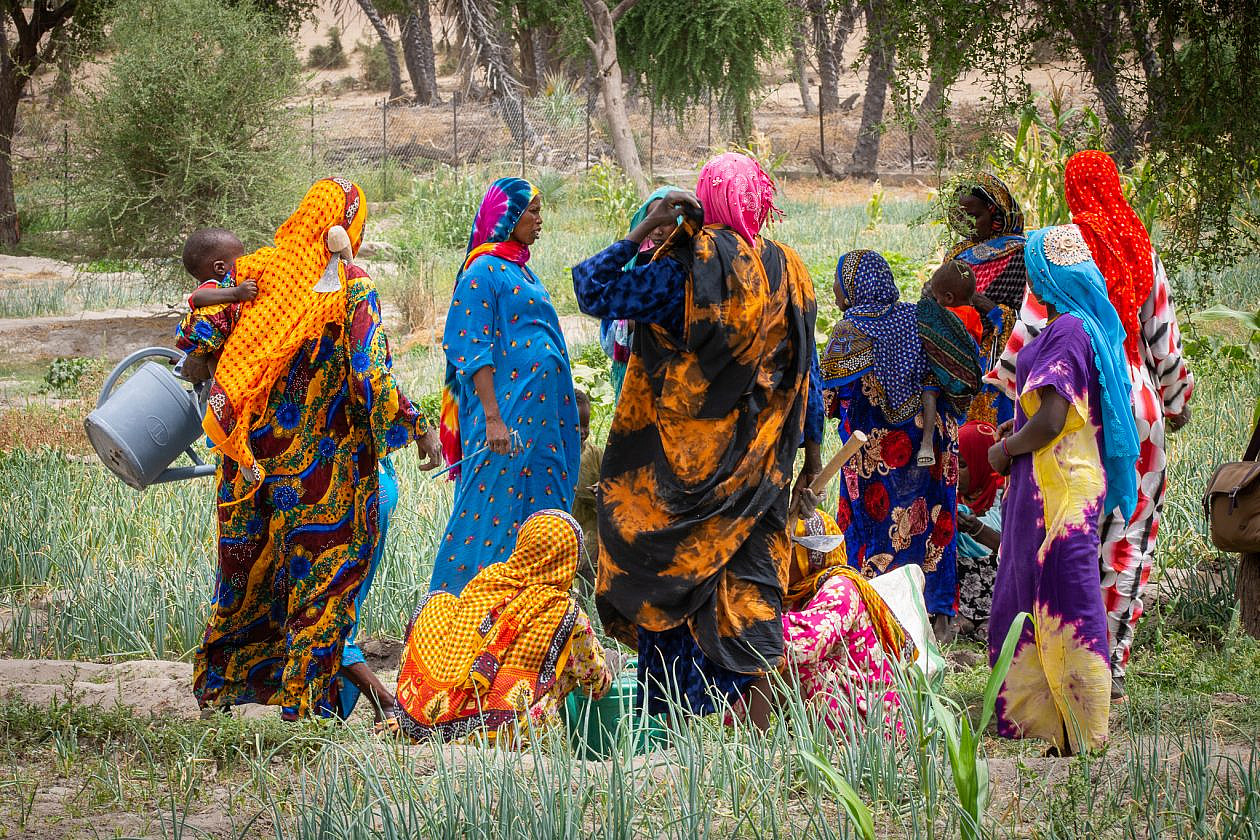
Tangible Commitments to Strengthen Resilience to Shocks
The Sahel Alliance is actively working on building resilience to shocks, including climate shocks, both through the perspective of strengthening agricultural and food systems and adaptive social protection systems.
A seminar was held in Dakar on 8 November to understand the factor dynamics in terms of fragility in agricultural and food systems in a context of crisis.
Involving the ministries of agriculture of the Sahel countries, regional organisations, civil society and think tanks, the shared analyses highlighted the region’s potential and levers for action to reduce crisis factors and strengthen social cohesion. Work is pursued to identify a joint Sahel Alliance initiative addressing the structural fragilities of food systems in the Sahel while integrating the “conflict prevention” dimension.
This work will allow the Sahel Alliance members to pursue their efforts to operationalise the Climate/Security Nexus revolving around:
- anticipation through risk analysis, early warning systems
- protection by developing insurance mechanisms against climate risks
- restoration through better management of land and natural resources, promotion of solutions based on biodiversity and ecosystems
- social cohesion by creating forums to strengthen community relations and conflict mediation.
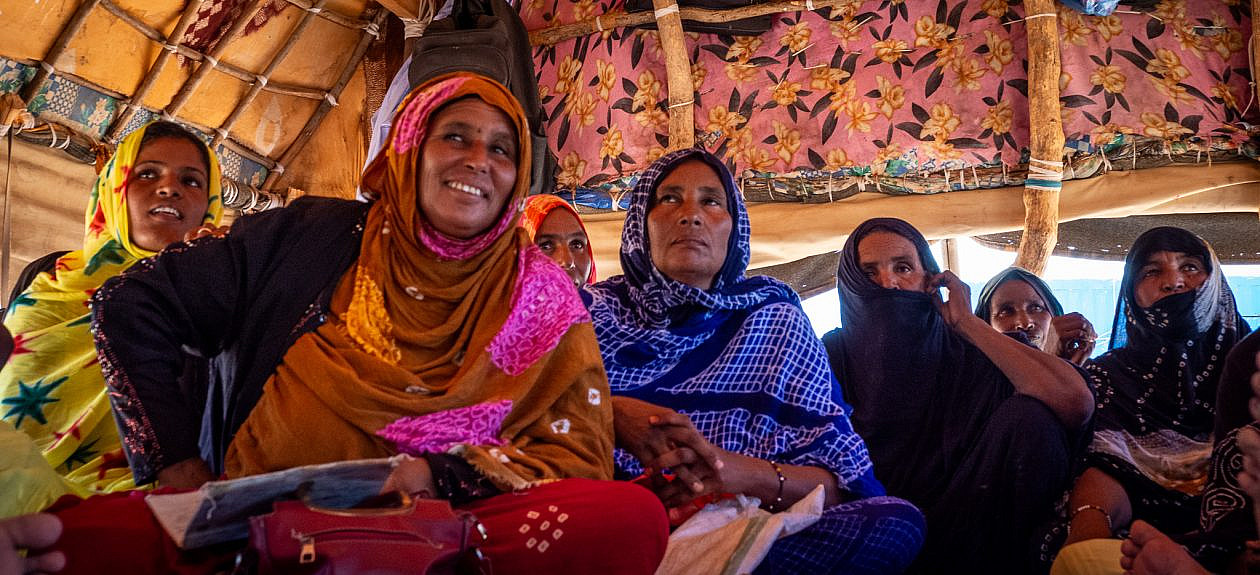
The other important aspect of resilience relates to the development of adaptive social protection systems. These programmes have demonstrated their effectiveness in protecting households most exposed to the impact of economic shocks, natural disasters and other crises. Social safety nets also reduce the risk of conflict over access to land and the sharing of natural resources.
Several members of the Sahel Alliance (FCDO/BMZ /DANIDA/France-AFD) are already contributing to the Adaptive Social Protection Programme in the Sahel initiated by the World Bank and have decided to make a greater commitment to converge and strengthen their support in this area.
At the local level, it is essential to maintain actions that contribute to helping Sahelian populations to prevent and adapt to the consequences of climate change, and this requires ensuring the continuity of development interventions. This continuity often means adapting or even redirecting action, especially in rural areas, which in the central Sahel are still the most severely affected by violence.
To date, the measures implemented by Alliance members and their partners have consisted of strengthening the capacities of local partners to support project agents in areas that are difficult to access, developing remote monitoring & evaluation systems, relocating or redirecting activities while seeking maximum flexibility.
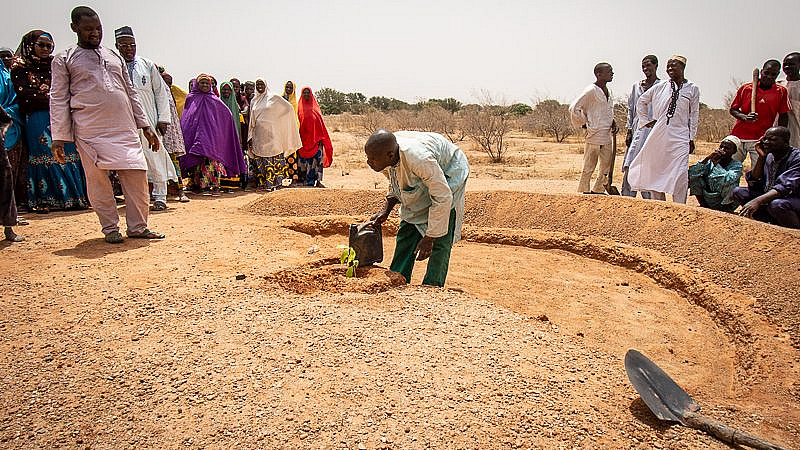
Raising awareness of tree planting techniques in arid environments, Maradi region, Niger.
The Integrated Territorial Approach, a Tool for Dialogue
The Integrated Territorial Approach which aims to provide a more coordinated response to a territory’s development priorities, constitutes a tool for dialogue with local authorities and communities on priorities linked to the effects of climate change.
For example, in vulnerable areas such as Hodh El Charqui in Mauritania (faced with an influx of Malian refugees) or Kanem and Barh El Gazel in Chad, where people’s livelihoods remain highly dependent on uncertain rainfall, ATI can help mitigate the risk of local conflicts linked to access to limited natural resources.
Climate, security, development and humanitarian issues can no longer be separated. Greater alignment and coordination are more necessary than ever in a region where the context is constantly evolving and requires us to rethink how we operate. The Alliance is more committed than ever and is focusing all its efforts on this agenda.
* According to the Country Climate and Development Report (CCDR), published by the World Bank Group for the G5 Sahel countries.
Photo credits: Alliance Sahel/Aude Rossignol

